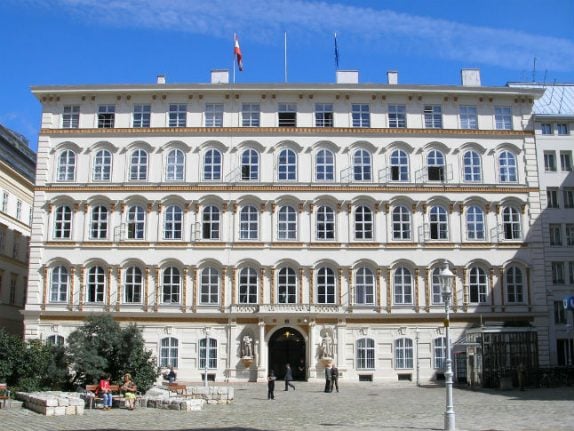The film appears to show when the two Swedes, along with rebels from the Ogaden National Liberation Front (ONLF) Guerrilla, had just been arrested by the military in the turbulent Ogaden region.
The video has probably been released for propaganda purposes, and half of the materials appears to have been filmed by the military. The rest is made up of Swedes own material filmed before they were arrested.
“If there is a trial the footage could be used as evidence that they entered the country illegally, which they were forced to say on tape. It can also be used as evidence that they had received weapons training; they are also with the ONLF in a conflict situation,” Ethiopia expert Kjetil Tronvoll explained to Sveriges Radio’s Ekot news programme.
In the video on the site CakaaraNews, Martin Schibbye and Johan Persson are placed in front of military cameras. In the background is seen a dry, open landscape with plenty of shrubs. Both have visible injuries, which are shown in pictures.
They both tell an almost identical story to the military about how they broke into the country illegally, and Schibbye said that the ONLF advised them to do so. The purpose of the visit was, he says, to interview the rebels.
“At noon on July 1st, we sat down and ate together with the ONLF. We heard gunshots. And our plan from the beginning – because we are illegally in the region – was to hand ourselves over if we came across soldiers from the (Ethiopian) army.”
Schibbye told how he heard only rifle shots.
“We ran away from the bullets, to an open space like this and showed our white skin and gave ourselves up. And the Ethiopian army has taken good care of us,” he said.
The film also depicts their wounds being dressed and them receiving food.
In the Swedes’ own material, which the military uses in the beginning of the film, one can see their preparations to get into the Ogaden. There are interviews with refugees and one of the Swedes fires a weapon. This is followed by fragments of a car drive and walking in arid terrain along with armed men, presumably ONLF rebels.
Around 16 minutes into the movie gunfire is heard suddenly and it is then shown how Ethiopian troops disarm several of the men, stretching up her arms in the air as a sign of surrender.
On the ground a man is seen lying, presumably dead. Thereafter, only the Ethiopian military’s own images of Martin Schibbye and Johan Persson.
Kent Öberg at the Swedish foreign ministry press office saw the video with the Swedes at 10pm on Sunday.
“I have seen it, but did not understand what they said.”
“I have sent it to Addis Ababa, the embassy there, so they can have a look at what is being said.”
The foreign ministry had no additional comments on the video, but said that the media is being continuously monitored.



 Please whitelist us to continue reading.
Please whitelist us to continue reading.
Member comments